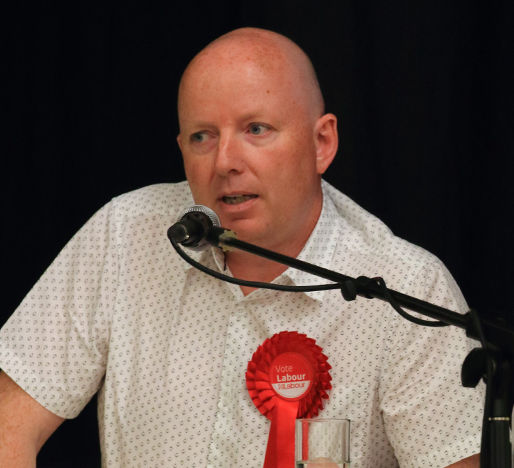It’s time to end the Prepayment rip-off
- Julian Vaughan

- Nov 12, 2020
- 5 min read
It’s amazing how cheap stuff is when you can afford to pay for it. I’m not just talking about the freebies doled out to celebrities. Nor the lavish junkets laid on for corporate fat cats. Not even the discounted food and drink available at the Houses of Parliament for those who have enjoyed a lengthy ride on the gravy train, while voting for children to go hungry. I’m talking about the much more mundane day to day items, which make the daily grind of life that much more difficult for the least well off in our communities.
When you pay your vehicle excise duty, more commonly known as ‘road tax’, you’ll get the option of paying for six months or a year. You’ll notice there is a discount for paying a year up front as set out below.

A tough choice for many
For many people across the UK the above will be a very easy decision, because they quite simply haven’t got the money to pay for the year. According to the National Audit Office 22% of UK adults have less than £100 in savings. However, just for not being fortunate enough to have a spare £150 hanging about, over the course of the year they have to pay an extra £15.00 for the privilege of being poor. Now on its own this may seem like small change, but if you add all the instances of the financial disadvantages that the poorest in society endure it becomes a burden they can ill afford.
On to prepayment meters. Based on 2018 figures from the energy regulator OFGEM, there are around 4.4 million electric and 3.4 million gas customers on a prepayment meter. I suspect that there are only a handful of MPs if any among this group of customers, which may be part of the problem.
Prepayment meters, where you pay for your electricity or gas before you use it, have substantially higher tariff prices than those on a credit meter, where you pay on either a monthly basis or on receipt of a bill, after you have used the energy.
I’ve looked into the reasons given for this difference in prices and have found two main justifications for it. Firstly, the expense of providing the keys or the tokens with which customers top up their prepayment meter. Secondly the costs incurred by sending someone round to manually adjust the prepayment meters each time there is a price change.
Of course it’s not marketed in this way! I read one example of where it was breezily described as a chance for “customers to choose when and how much to pay for their energy”. Further to this, in the sunny world of energy supply, getting cut off is described in the industry as ‘self disconnection’, as if it were a lifestyle choice.
What are the price differences between prepayment and credit tariffs? As of September 2020:
the cheapest direct debit deal for a typical medium domestic user was £797.
the cheapest prepayment deal was £982
so those least able to afford it will typically pay £185 more for exactly the same energy!
These were the cheapest deals. Looking at the ‘Big Six’ energy companies (British Gas etc.) the difference was even greater at £244. Checking back to the equivalent pricing in 2014, it is very clear that the situation has not improved and this price gap has remained largely unchanged.
OFGEM admit that those on prepayment meters have fewer competitive tariffs to choose from and while ‘warrant charges’ where people have to pay for the ‘convenience’ of having their meter changed to a pre payment meter have reduced, there has been a large increase in smart meters being changed from credit to prepayment mode.
It will be little surprise then to hear that ‘self disconnections’ are common. 21% of households that self disconnect say affordability is the reason and 88% of these households contain a child or person with a long term health condition. 55% of people ration usage, with a high number of these limiting energy use to a few hours a day, or a few days a month.

OFGEM figures on vulnerability across the UK
Fuel poverty is frequently not the only vulnerable circumstance affecting these households, where unemployment, mental health issues and physical disabilities present additional difficulties and further expense. According to Scope’s ‘Disability Price Tag’ report disabled adults face extra costs on average of £583 a month and therefore these costs may be prioritised over keeping warm during the winter.
Those customers wishing to change from the higher tariffs of a prepayment meter to the cheaper deals available on a credit meter have to pass a credit check, not an easy task for someone who is likely to have a poor credit history or no credit history at all, as well as the potential of having to pay a security deposit. So often they remain stuck with a prepayment meter and the accompanying expensive tariffs and it becomes a vicious circle of financial hardship.
For balance I should point out that it is not all bad news and energy companies have made emergency credit available, as well as ‘friendly credit’ (they’re a cuddly lot these energy companies) which means you won’t be cut off (sorry, self disconnected) in the evenings, Sundays or Bank Holidays.

Smart meters – good or bad?
As you will be aware, more households are now being fitted with smart meters. However, these are a double edged sword as it then becomes very easy for an energy company to remotely switch a meter from credit (cheap) to prepayment (expensive) mode where debt has become an issue with that customer. Smart meter switches from credit to prepayment mode increased from 21,000 in 2017 to 70,000 in 2018. In spite of this smart meters are being described as beneficial to prepayment customers, as it increases the number of ways to pay, by app or mobile etc. saving a trudge down to the petrol station.
However, the energy companies can’t have it both ways. If it is now easier (and therefore cheaper) to remotely switch pricing of the meters, change the modes that they operate in and enable easier ways to pay than card and key, how can they now justifiably continue to only offer the most expensive tariffs to these prepayment customers?
The ongoing impact of the pandemic is likely to place great financial strain on an increasing number of people. The rollout of smart meters means it is time to end this prepayment rip off and allow these customers full access to the cheapest tariffs now – and not at some unspecified point in the future!
Julian Vaughan – 12th November 2020
Further reading:
OFGEM – Vulnerable consumers in the energy market 2019
Scope – Disability price Tag Report 2019
Retail Energy Charts
Labour List – Time to end the rip off of prepay energy meters – Dawn Butler MP






Comments